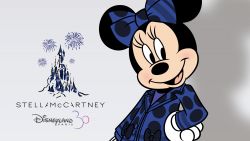“The Mandalorian” premiered almost a year ago, serving as the biggest enticement to subscribe to Disney’s startup streaming service. The launch exceeded any reasonable expectations, but with Disney facing a much-altered media galaxy, there’s even more pressure on the live-action “Star Wars” series to deliver a big bounty to the studio.
That’s because the coronavirus pandemic has hit Disney harder than most giant companies. Its theme parks and blockbuster movies have been especially vulnerable to a public-health concern that keeps people at home.
Disney+ has become the company’s biggest success story — leveraging the company’s major brands and capitalizing on the appetite for content. That places extra pressure on “The Mandalorian,” which, with most major movies postponed into 2021, represents the closest thing to a blockbuster that Disney is apt to release this year.
“‘The Mandalorian’ is hugely important because it’s probably the biggest entertainment property right now,” Zak Shaikh, vice president of programming and entertainment at research-based media firm Magid, told CNN Business. “It’s like how ‘Game of Thrones’ was vital to HBO.”
Shaikh noted that “The Mandalorian” is No. 1 in Magid’s biweekly study that looks at how engaged viewers are with a particular show. It outranks other series, including “This Is Us” and “Stranger Things.”
“It shows how old intellectual property can continuously be refreshed,” he said.
The show’s popularity offers an opportunity to cash in on other fronts, most notably merchandising, after the studio appeared to leave lots of money on the table last holiday season because of a lack of products tied to the “Star Wars” series.
Part of that had to do with a stated desire not to spoil the show’s “Baby Yoda” surprise, but Disney clearly looks intent on rectifying that this fall: A quick visit to its ShopDisney website finds 160 available items, with everything from toys and apparel to cufflinks and bedspreads.
“I don’t think there’s any single character creating more revenue in a toy aisle than ‘Baby Yoda,’” Gerrick Johnson, a toy industry analyst at BMO Capital Markets, told CNN Business. “You need the right buzz, you need the right excitement and I think things are falling pretty perfectly for ‘Baby Yoda’ right here.”
Like any individual streaming offering, ascertaining the precise value of something like “The Mandalorian” is hard to measure. But the benefits to Disney+ go beyond just motivating people to subscribe.
The show has also brought scads of publicity to Disney+ — which, in the most recent figures, boasts more than 60 million subscribers — as well as awards prestige, including seven Emmy wins in September and a nomination for outstanding drama series.
Apart from that, “The Mandalorian” has also livened up Star Wars, a $4 billion brand that was getting pretty stale for Disney just a short while ago.
In 2018, the spinoff “Solo: A Star Wars Story” was a box-office disappointment — at least in terms of Star Wars standards — and December’s “Star Wars: The Rise of Skywalker” garnered a mixed reaction from audiences despite bringing in more than $1 billion globally.
“I don’t know that it’s revamped it, but rather shown that there are perhaps some stories within the Star Wars galaxy better suited to televisual storytelling forms,” Suzanne Scott, an associate professor at the University of Texas’ Moody College of Communication, told CNN Business.
Scott added that live-action Star Wars TV series “have always been in perpetual development, but difficult to get off the ground.”
“Hopefully its success will make Disney slightly more willing to take risks with a franchise that, for many fans, has grown rather stagnant and predictable,” she said. A limited series featuring Ewan McGregor as Obi-Wan Kenobi — reprising his role from the prequels — is in the works.
As “The Mandalorian” heads into its second season, it’s now the mission of a galactic bounty hunter and a very cute, big-eared baby to entertain millions during a difficult year. But the series also has to prop up Disney+, which is now the shining center of Disney’s hobbled media empire.
But according to Shaikh, Disney+’s galaxy is bigger than just the one far, far away.
“As successful as it is, I don’t think any streaming service survives off of one hit, no matter how great it is,” he said. “Disney+’s success is due to many factors, including brand recognition and an exceptional library.”



























